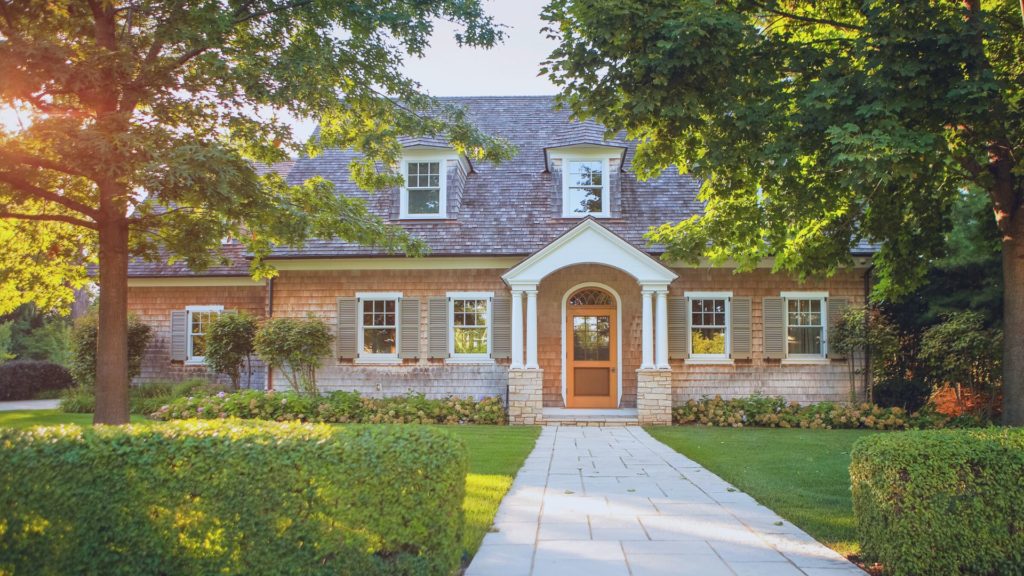Buying a home is one of the most exciting chapters of our lives. It’s time we finally buy a place of our own and decorate it according to our design preferences. While many couples hold off on this major purchase until after they’ve said “I do,” some purchase a home before the big day. Not sure whether to buy or wait? This post will delve deeper into purchasing a home before marriage and emphasize what couples need to know.
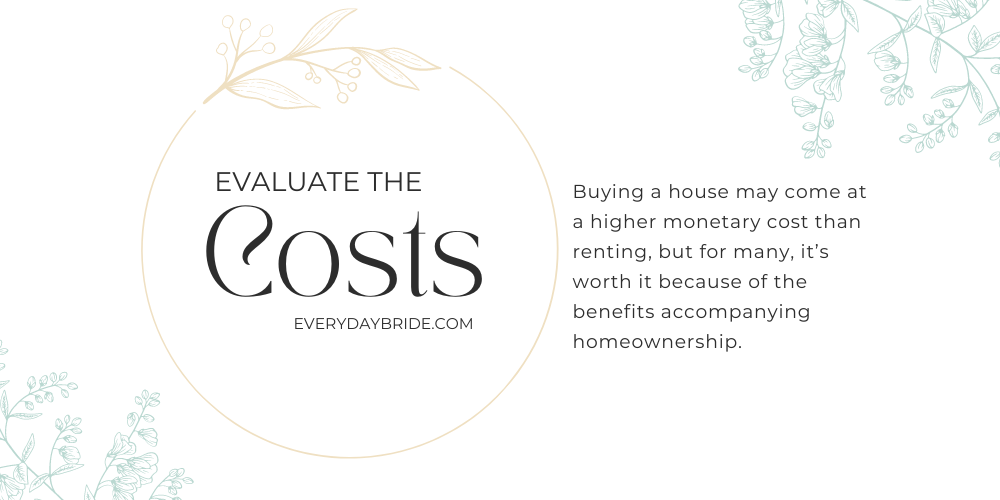
Evaluate the Costs
Buying a house may come at a higher monetary cost than renting, but for many, it’s worth it because of the benefits accompanying homeownership. These include:
- Building your credit
- Flexibility in decorating
- More privacy
- Improving wealth as house value increases
When you purchase a house, you also get all these incentives which can help increase feelings of comfort before your wedding.
Buying Builds Your Credit
When you’re applying for a credit card or loan, banks evaluate your credit score; anything between 670 and 739 is good, while numbers above 800 are superb. A problem with renting a space is that paying rent won’t help build your credit. However, buying a car or home helps boost this as you make all your payments because it proves that you’re “credible” for the money banks loan you.
You Can Personalize a Home
To some individuals, especially those who are very practically minded, rent feels like a waste of money. While it covers the roof over your head, there isn’t much to show for it. You don’t own the property, so there’s a limit on your personal touches since you can’t make renovations. This makes it harder to create that cozy home environment you desire. Alternatively, when you own a house, you can renovate it whenever you have the time and money.
More Privacy
One of the biggest pitfalls of apartment life is that the walls almost always seem paper thin. You hear your next-door neighbor’s alarm clock blaring at 6 a.m. on a Tuesday. You also hear the people living in the suite above you walking around at night. Plus, you worry about how much noise you make. None of this is a concern with a home because the entire property is yours.
Value Increases Over Time
Over time, the value of a home can increase, specifically if you care for it and buy in a great area. This means if you sell, you’ll walk away with more money or at least break even. On the contrary, when you rent, you walk away with nothing, not even increased credit, once the lease ends.
Stable Rates
When you rent, your landlord can alter the price. Unless you have a variable mortgage, this won’t happen with homeownership. A fixed mortgage remains the same until you’ve paid it off. Plus, you can pay off a loan in a lump sum. So if your friends and family gift you money for the wedding, you can put that toward paying your house off. The quicker you pay your mortgage, the less interest you pay.
Decide On Your Ideal
There are many differences between renting and owning a home. To some, renting is a waste of money, but seekers of adventure who enjoy moving around would disagree. To decide what’s best, consider your finances, lifestyle preferences, and why you want to own a home.
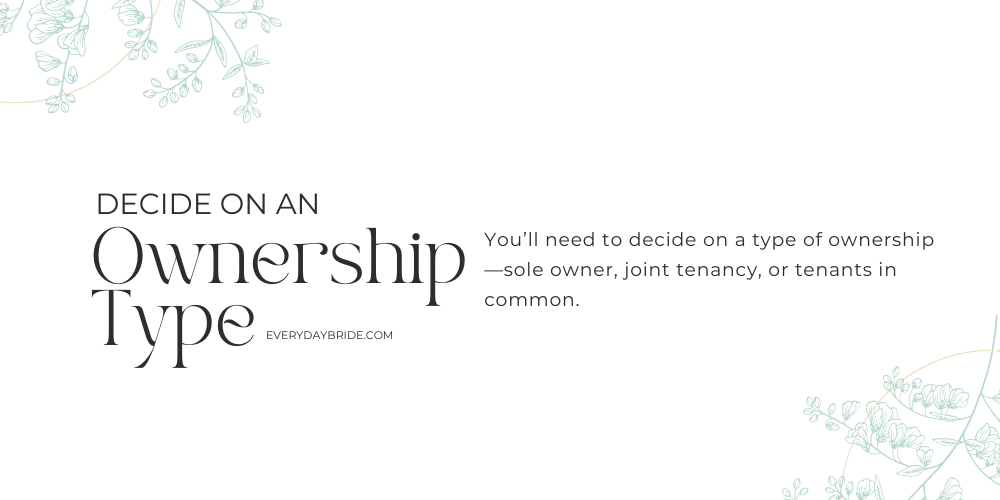
Decide On an Ownership Type
Once you’ve found your dream property, buying a house isn’t as simple as signing all the paperwork and collecting the deed. First, you’ll need to decide on a type of ownership—sole owner, joint tenancy, or tenants in common.
Sole Ownership
For sole ownership, only one partner legally owns the house, so only one of you applies for the loan. Both of you should test your credit score. Remember, for good loans, you want that number to fall between 620 and 739. The partner with the higher score should be the one applying for the loan since this will provide you two with better interest rates.
Joint Tenancy
In joint tenancy, you can apply for the loan together. Lenders consider you a duo. In other words, you have equal ownership over the property. Both credit scores get evaluated, as well as your combined income, to ensure you can make the mortgage payments.
Tenants in Common
This is much like joint tenancy; however, you both own 50 percent of the house rather than 100 percent combined. Many experts advise this toward unmarried couples because in worst-case scenarios—death or a breakup—one party isn’t forced to sell the house.
Updating Legal Documents
After your wedding, you need to update many legal documents, including the deed and title of your house and your homeowner’s insurance. This is especially important if one of you changes your last name because the old name on those documents is no longer your legal name.
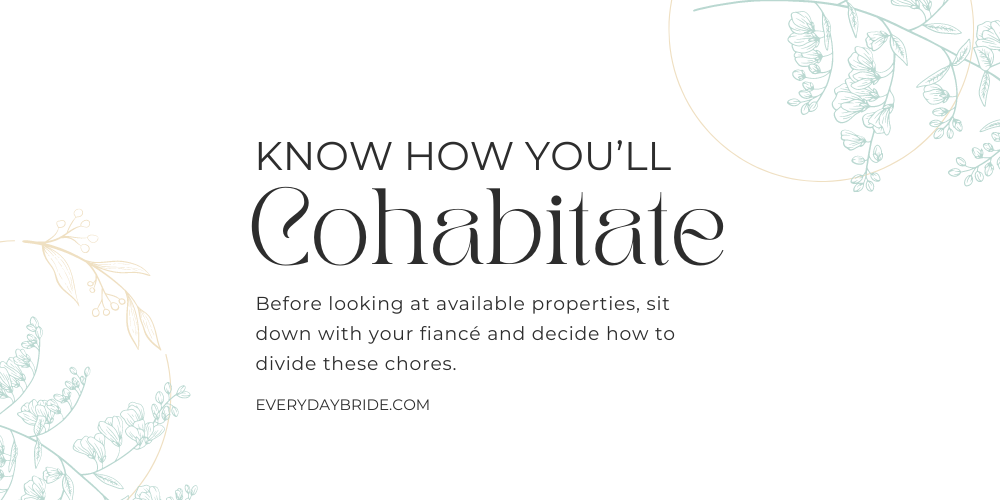
Know How You’ll Cohabitate
The things unmarried couples need to know before purchasing a home go beyond finances and monetary gain. You also need to understand how to cohabitate. If you already live together in an apartment, you’re one step ahead, but owning a home comes with more responsibilities.
Now, you’re responsible for maintaining utilities and keeping up with landscaping while still cleaning the interior. Plus, you’ll need to juggle grocery shopping, work, and other life responsibilities. Before looking at available properties, sit down with your fiancé and decide how to divide these chores.
Split Up Finance
You’ll also need to decide who will pay for what expenses as you split up chores. This depends on the type of ownership you choose. If one of you is the sole owner, that partner may cover mortgage payments while the other pays taxes. Keep this equal according to your income. In other words, rather than set monetary amounts, base it on a percentage of wage.
Bridal Tip
Now’s a great time to evaluate conflict resolution tips for couples. Planning a wedding is stressful, and so is buying a home. By knowing how to deal with conflict healthily, you can prevent arguments and enjoy these incredible moments.
Waiting May Be Worth It
Some couples wait to buy a home because once they get married, they’ll have more tax deductions; they’ll be able to take a deduction from taxes for their mortgage. In joint tenancy, you can only claim the half of the property you own. However, when you buy a home before getting married, only one of you can take this tax deduction.
Tips for House Shopping
As you begin scoping out towns and touring properties, you’ll need to establish a budget so you only look at the home you can afford. Additionally, make a list of what the house needs to further simplify the search.
Establish a Budget
Once you start home shopping, evaluate your partner’s and your finances. Check your credit scores and determine how much money you have in saving. There should be enough to comfortably make a down payment, monthly mortgage payments, and monthly expenses.
Once you’ve determined how much money you have to spend, search for towns with homes that align with this budget. As you evaluate areas, note the crime rates, schools, and taxes. Additionally, note the age of the houses for sale.
Buying Tip
While some houses may appear perfect on the surface, you don’t always know what lies beneath them. Older homes often have higher maintenance costs or could have hazardous materials such as lead-based paint and asbestos. Moreover, they’re usually less energy-efficient due to the older windows and doors letting in a draft. As tempting as television shows make those old fixer-upper homes look, remember that reality TV isn’t what it seems.
List Out Must-Haves
Sit with your partner to create a list of must-haves and nice-to-haves. This can include home essentials such as a basement or an in-ground pool but also involves the town. For example, you should shop for properties located in areas with good school districts, even if you don’t plan to raise a family there. A better school district boosts property values and often makes it easier to sell the home if you decide to move in a few years.
You’ll only tour houses meeting the qualifications if something is a must-have. On the other hand, nice-to-haves are things you consider a bonus. That pool may be a nice-to-have, while ample storage is a must. What’s important differs from person to person, so take the time to weigh your criteria.
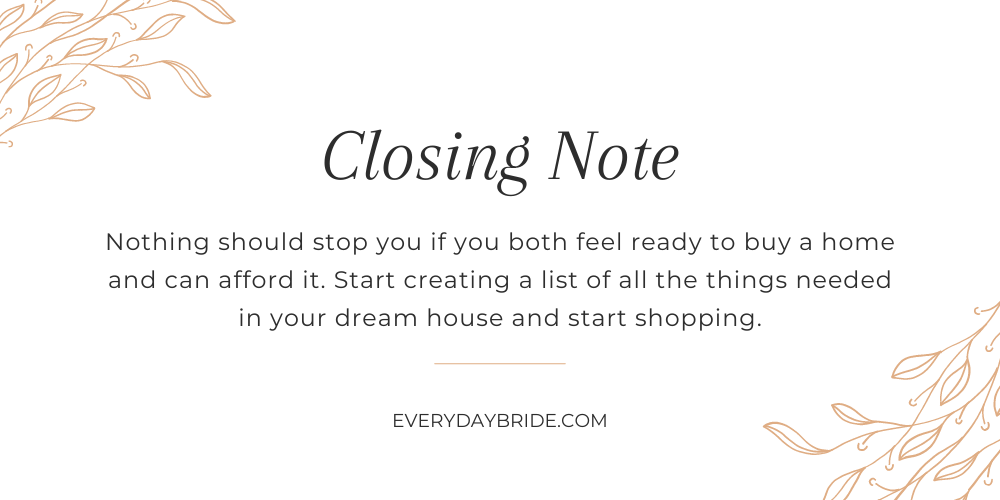
Closing Note
Some couples get engaged and then wait several years to officially tie the knot. We all have our own timelines and move at varying rates according to what works best for us individually. Some couples prefer to be economically established before diving into wedding planning. Likewise, if you have children together or are creating a blended family, buying a home may trump throwing an extravagant wedding at the moment.
Nothing should stop you if you both feel ready to buy a home and can afford it. Start creating a list of all the things needed in your dream house and start shopping. In no time, you’ll transform that house into a cozy home where you and your partner will write your story together.

